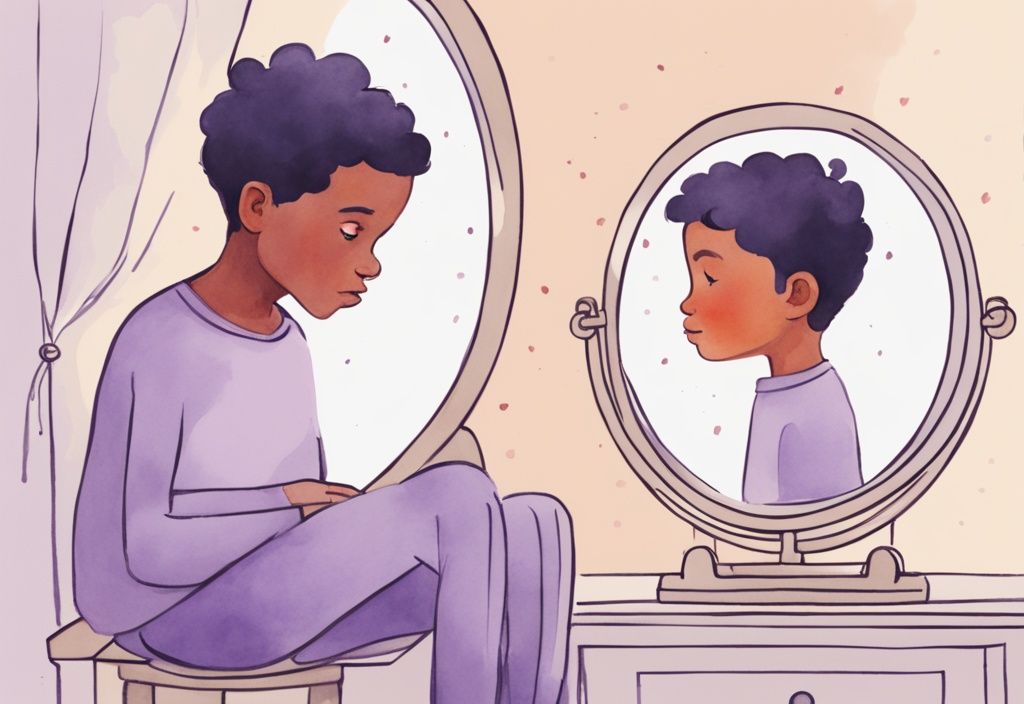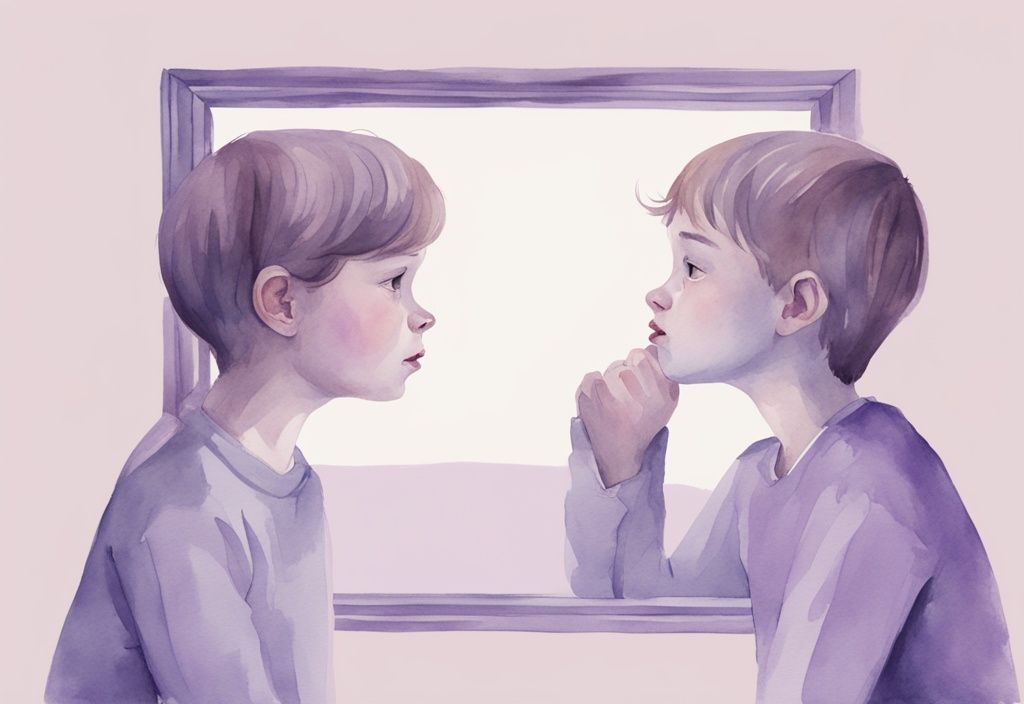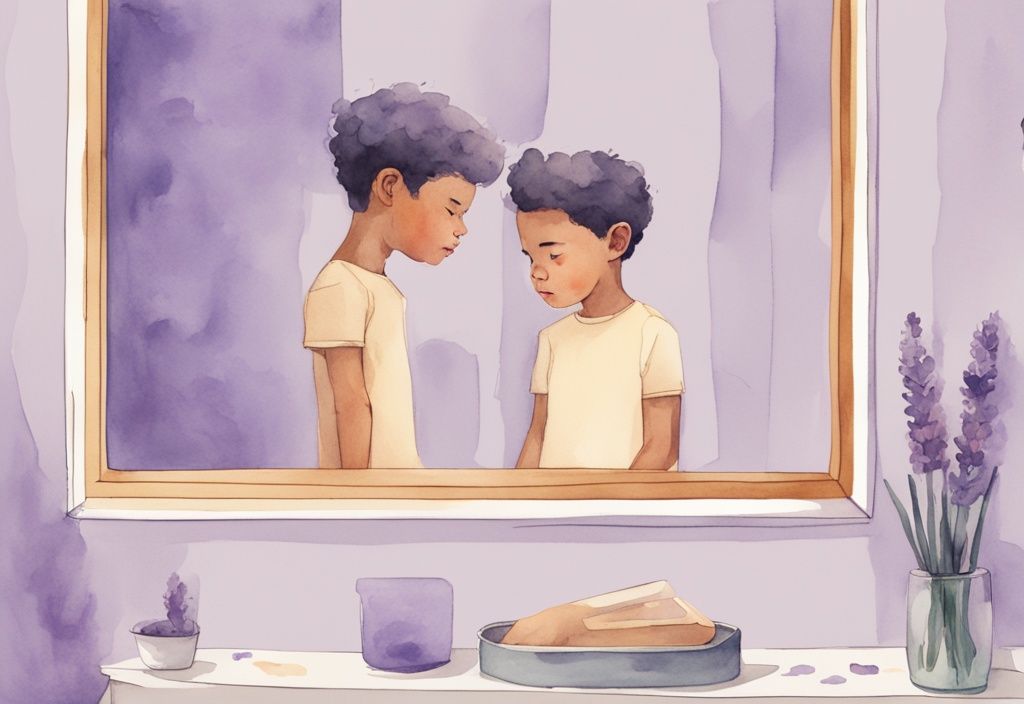Understanding and Dealing with a Narcissist Sibling: Steps and Tips
Introduction
Have you ever felt trapped in the confusing labyrinth of dealing with a narcissist sibling? In our complex web of family ties, the emotional toll from such a relationship can be devastating. As an expert in psychology with personal experience navigating this situation, I understand your struggle.
This article endeavors to illuminate the obscure traits of a narcissistic sibling, whose toxic behaviours and emotional manipulation can deeply impact your mental health. Here, you will learn how to identify these traits, understand their lasting effects on your psyche, and explore effective strategies to manage and heal from these challenging relationships.
Remember, understanding is the first stride towards healing, and you’re not alone in this journey. Together, let’s unwrap the mystery surrounding narcissist siblings and cultivate emotional health for a brighter future.
Introduction to Narcissist Sibling Dynamics
In healthy families, sibling relationships form some of the most cherished bonds, evolving into lifelong friendships. These connections offer support, companionship, and mutual growth. However, the experience differs starkly when a family includes a narcissist sibling. Understanding the complexities of living with a narcissist sibling is crucial for navigating these challenging dynamics.
Exposure to Emotional and Physical Abuse
Growing up with a narcissist sibling often subjects one to significant emotional and sometimes physical abuse, which can be difficult to recognize and address. According to the National Coalition Against Domestic Violence, emotional abuse is when a person uses words or actions to frighten, control, or isolate a victim, making it a subtle and challenging form of abuse to identify. Learn more about emotional abuse and its effects. Imagine a childhood where manipulation, deceit, and control are everyday occurrences. These siblings wield these tactics to dominate their surroundings, creating a toxic environment that stifles emotional growth and well-being.
Strained Family Relationships
The presence of a narcissist sibling frequently leads to strained family relationships. Other siblings may feel neglected, overshadowed, or continuously in conflict, leading to a pervasive sense of imbalance. This tension doesn’t stay contained; it seeps into every family interaction, fracturing the family dynamic and leaving lifelong emotional scars.
Persistence of Emotional Trauma into Adulthood
Emotional trauma from interactions with a narcissist sibling often persists well into adulthood. Those affected carry forward feelings of inadequacy, anxiety, and depression. These lingering emotions contribute to chronic mental health issues that may require long-term interventions to heal.
Monopolizing Parental Attention
Narcissist siblings are notorious for monopolizing parental attention. Their relentless need for validation often leaves others feeling unseen and undervalued. This constant overshadowing significantly impacts the emotional needs and self-esteem of their siblings, creating a lasting imprint on family dynamics.
Importance of Understanding These Dynamics
Understanding the dynamics of living with a narcissist sibling is crucial for safeguarding your well-being and long-term emotional health.
By recognizing the patterns and impacts of their behavior, you can empower yourself to seek appropriate help and develop effective coping mechanisms.
Common Characteristics of Narcissistic Siblings
Growing up with a narcissist sibling can deeply impact your emotional well-being. These characteristics reveal how their behavior complicates family dynamics, often leaving you feeling confused and unappreciated.
Lack of Empathy and Emotional Manipulation
- Deficiency of Empathy: Narcissistic siblings struggle to understand or share the feelings of others. This incapacity makes them dismissive of their siblings’ emotional experiences and needs.
- Emotional Manipulation: To maintain control, they often twist situations to make their siblings feel responsible for the narcissist’s emotions. This manipulative tactic fosters guilt and self-doubt in the victim.
- Disregard and Blame: They show little regard for others’ feelings, frequently shifting blame onto others. This behavior leaves siblings feeling misunderstood and unjustly accused.
Attention-Seeking and Arrogance
- Constant Need for Attention: A narcissist sibling craves the spotlight and demands to be the focus of every social gathering. This incessant need diminishes opportunities for others to share their experiences.
- Sense of Entitlement: They expect others’ time, money, and support without offering any reciprocation. This entitled behavior can lead to a one-sided relationship where the sibling’s needs are always prioritized.
- Conversation Monopolization: Narcissistic siblings dominate discussions, often interrupting or dismissing others’ contributions. This behavior stifles open communication and mutual respect within the family.
Envious and Competitive Behavior
- Feelings of Envy: They often show resentment towards their siblings’ achievements or possessions. This envy can manifest as hostility or subtle undermining to belittle the sibling’s success.
- High Competitiveness: Narcissist siblings constantly strive to outshine their siblings, seeking validation through comparison and competitiveness. This creates an environment of rivalry instead of sibling support.
- Cruelty and Threats: When overwhelmed by jealousy, they can become malicious or threatening. This aggression serves to intimidate and diminish the self-worth of their siblings.
Control and Manipulation Tactics
- Dominance and Control: To assert dominance, narcissistic siblings use various manipulation strategies. They craft these ploys to retain power and suppress the autonomy of their siblings.
- Rule Changes: They frequently alter rules and expectations to benefit themselves. This unpredictability instills confusion and a sense of helplessness in their siblings, making it difficult to navigate interactions.
- Deceitful Behaviors: Narcissistic siblings often engage in dishonesty and betrayal, exploiting trust to control their family’s dynamics. This deceitful conduct fractures relationships and fosters an atmosphere of distrust.
Psychological and Emotional Impact of Living with a Narcissist Sibling
Lasting Psychological Scars
Growing up with a narcissist sibling can leave profound and enduring psychological scars. The constant barrage of narcissistic behavior—marked by manipulation and a lack of empathy—creates an environment of perpetual emotional upheaval.
This relentless exposure often leads to persistent feelings of fear, anxiety, and hyper-vigilance. Over time, continual belittlement and criticism wear away at self-esteem, making it incredibly challenging to develop a positive self-image.
Feelings of Anxiety, Depression, and Low Self-Esteem
Daily life with a narcissist sibling often spirals into chronic anxiety and depression. The unending cycles of conflict and efforts at self-preservation can leave one feeling constantly on edge. Emotional abuse leads to feelings of worthlessness, incompetence, and helplessness.
Living in such a volatile environment compels one to walk on eggshells, further reducing self-esteem and sinking into a deeper emotional chasm.
The Trauma Bond: Seeking Positive Reinforcement After Abuse
The phenomenon of trauma bonding frequently rears its head in relationships with a narcissist sibling.
This bond forms through a disturbing cycle of abuse followed by fleeting moments of affection or reward, creating a confusing mix of emotional highs and lows.
Despite the negative treatment, victims often find themselves seeking positive reinforcement and approval from their abusive sibling.
This toxic cycle makes escaping the abusive dynamics incredibly difficult, perpetuating emotional manipulation and entrapment.
Adopting Unhealthy Behaviors in Future Relationships
The normalization of unhealthy behaviors often carries over into future relationships for those who have lived with a narcissist sibling. 
Victims might become overly tolerant of abusive behavior in romantic, professional, and social settings.
Such normalization often results in patterns of self-blame, guilt, perfectionism, and emotional shutdown, hindering the formation of healthy relationships.
Recognizing and addressing these deeply ingrained patterns is crucial for breaking the cycle of abuse and fostering emotional well-being.
Manipulative Tactics Used by Narcissistic Siblings
Having a narcissistic sibling can be profoundly challenging due to their manipulative behaviors. Recognizing these tactics is crucial in safeguarding your mental health and reclaiming your sense of reality. Let’s dive into two key strategies often employed by narcissistic siblings.
Gaslighting and Guilt-Tripping
- Gaslighting: This insidious tactic makes you doubt your own reality and feelings. Imagine your sibling consistently denying events you remember clearly or accusing you of being overly sensitive. Over time, this relentless denial and criticism can muddle your perceptions, leaving you questioning your sanity.
- Guilt-Tripping: Narcissistic siblings excel at twisting narratives to shift blame onto you. Picture scenarios where you find yourself apologizing for their misdeeds. They’ve masterfully crafted a sense of culpability and confusion, making you see yourself at fault for their actions.
- The aftermath of gaslighting and guilt-tripping often leaves you feeling disoriented and uncertain about your memories and judgments. This erosion of self-trust not only damages your confidence but also fosters a dependence on the narcissistic sibling for validation and truth, further entrenching their control.
Triangulation and Victim-Playing
- Triangulation: This tactic involves roping in a third person to create alliances against you. Picture your sibling sharing distorted stories with another family member, setting the stage for sides to form and conflicts to escalate. The tension disrupts family harmony, often isolating you.
- Victim-Playing: A narcissistic sibling has a knack for playing the victim to garner sympathy. They present themselves as the wronged party, swaying others to their side while painting you as the antagonist. This maneuver not only garners them support but also manipulates perceptions against you.
- These strategies sow division and mistrust within the family, making it tough to find allies. The calculated isolation deepens feelings of loneliness and betrayal, exacerbating the emotional toll on you.
Understanding the Root Causes of Narcissistic Behavior
Exploring the origins of a narcissist sibling’s behavior reveals a complex interplay of parenting styles, genetic predispositions, and environmental influences. Each factor can shape how these traits evolve and present themselves within the dynamics of family relationships.
Parental Influence and Sibling Dynamics
Parenting styles significantly influence the development of narcissistic traits in a narcissist sibling. When parents are permissive, they often fail to set clear boundaries. This can inadvertently encourage entitled behavior, allowing narcissistic tendencies to flourish unchecked.
Contrastly, authoritarian parents, with their excessive demands and harsh criticism, often foster narcissism. This environment may create a child who feels the need to constantly prove themselves, leading to grandiosity and a lack of empathy as defense mechanisms.
Avoidant parenting, marked by emotional negligence, can further exacerbate narcissistic tendencies. Without emotional teaching and nurturing, children may struggle with empathy and emotional regulation. These key traits are often seen in a narcissist sibling.
Genetic Predisposition and Environmental Factors
The emergence of narcissistic behavior in a narcissist sibling is influenced by a combination of genetic and environmental factors. Genetic predisposition can mean that certain personality traits, such as a tendency towards selfishness or lack of empathy, are inherited.
Environmental factors, including the dynamics within familial relationships and the overall upbringing, also play a critical role. Exposure to consistent criticism, lack of emotional support, or preferential treatment can reinforce narcissistic tendencies. Understanding the blend of genetics and environment provides a more comprehensive picture of why a sibling may exhibit narcissistic behavior.
The Role of Parenting Styles: Permissive, Authoritarian, and Avoidant
Permissive parenting, marked by a lack of rules and boundaries, can result in children who display low self-control and entitled behavior. In the context of a narcissist sibling, this permissiveness often translates to an expectation that their needs and desires will always be prioritized.
Authoritarian parents, with their strict and demanding approach, may unintentionally cultivate narcissistic traits. The environment they create often leads children to develop defense mechanisms like narcissism, as a way to cope with relentless pressure and criticism.
Avoidant parenting, characterized by emotional disconnect and neglect, often leads to children who grapple with emotional regulation and empathy. A lack of emotional teaching and support from parents can exacerbate the development of narcissistic tendencies in siblings, causing long-term impacts on their interpersonal relationships and emotional well-being.
Signs and Symptoms of Narcissistic Personality Disorder in Siblings
Recognizing the distinct signs and symptoms of narcissistic personality disorder in siblings is crucial for understanding family dynamics and fostering healthier relationships. Below are key indicators that can help you identify a narcissist sibling.
Inflated Self-Importance and Need for Praise
Imagine living with someone who believes they are a star in their own movie. Narcissistic siblings often have this exaggerated sense of their own importance. They crave constant admiration and validation as if their self-worth is a bottomless pit. Their displays of arrogance might make you feel like you’re walking in their shadow, always catering to their needs and stroking their ego. Over time, this relentless need for praise can turn interactions into exhausting, one-sided affairs that leave you feeling drained and unappreciated.
Disregard for Others’ Feelings and Lack of Accountability
One of the most painful traits of a narcissist sibling is their blatant disregard for your feelings and needs. Their empathy levels can be depressingly low, often leaving you feeling invisible or hurt. When their behavior causes emotional harm, they’re quick to dodge any responsibility. Placing blame elsewhere becomes their defense mechanism. If you dare to point out their faults, be prepared for explosive anger and defensive tactics that can make you question your own reality.
The ‘Golden Child’ vs. the ‘Scapegoat’ Sibling Dynamic
In families with a narcissist sibling, a painful and often toxic dynamic frequently emerges: the ‘golden child’ vs. the ‘scapegoat.’ As the golden child basks in excessive praise and adoration, their narcissistic traits are reinforced, fostering a hazardous sense of entitlement. In stark contrast, the scapegoat sibling is burdened with unjust criticism and blame, irrespective of their actual behavior. This imbalance doesn’t just fuel the narcissistic tendencies of the favored child; it leaves long-lasting emotional scars on the scapegoat, damaging their self-esteem and sense of worth.
Effective Strategies for Dealing with a Narcissist Sibling
Dealing with a narcissist sibling poses unique challenges, but there are strategies you can employ to safeguard your emotional well-being and maintain boundaries. This section covers key techniques to help you manage these difficult relationships.
Setting and Enforcing Boundaries
- Clearly communicate boundaries: It’s crucial to outline your personal limits and expectations to your narcissist sibling. Articulate what behaviors you find unacceptable and explain the impact on your emotional health. This direct approach sets the stage for mutual respect.
- Enforce consequences: Consistency is essential. If your sibling crosses these boundaries, apply stated consequences firmly. This reinforces the importance of respecting your limits and helps you maintain control over interactions.
- Protect emotional well-being: Boundaries serve as protective barriers for your emotional health. They minimize the anxiety and stress triggered by manipulative behaviors, ensuring a healthier mental state.

Maintaining Emotional Distance
- Limit emotional exposure: Engage minimally to shield yourself from emotional manipulation. Low exposure means less influence over your emotional responses, giving you greater control.
- Keep interactions superficial: Steer clear of deep, emotionally-packed conversations that can be used against you. Stick to neutral topics to create a safe buffer.
- Space for personal healing: Emotional distance allows you the required space for self-reflection and recovery. It’s an essential step toward regaining emotional strength and balance.
Practicing Self-Care and Knowing Your Limits
- Regular self-care activities: Engage in activities like meditation, exercise, or hobbies that enhance mental health. Consistent self-care is key to building resilience against a narcissist sibling’s behavior.
- Recognize personal limits: Pay attention to your thresholds for interaction and stress. Respecting these limits prevents burnout and helps you maintain emotional equilibrium.
- Take breaks and seek support: When overwhelmed, take a step back. Rely on friends, family, or professional counselors for support, as their reinforcement strengthens your coping mechanisms.
Gray Rock Technique: Minimizing Interaction
- Become uninteresting: Present yourself as unremarkable and emotionless during interactions. This makes you less appealing, reducing their emotional attacks.
- Non-reactive demeanor: Offer bland, non-committal responses to avoid engaging in manipulative dialogues. This strategy diminishes their power over you.
- Mitigate emotional impact: The gray rock method dampens the psychological strain of dealing with a narcissist sibling, providing much-needed emotional relief.
The Role of Therapy and Counseling in Healing Relationships
Therapy and counseling play pivotal roles in healing relationships strained by narcissistic dynamics. Understanding the profound impact of a narcissist sibling is essential for both victims and narcissists as they navigate the path to recovery.
How Therapy Helps Both Victims and Narcissists
Seeking therapy can be a lifeline for those entangled in relationships with a narcissist sibling. In the safe space of therapy, victims find an unbiased perspective that helps them unpack and address the emotional trauma inflicted by manipulative familial relationships. Here, you can process your experiences, unravel the emotional knots, and rebuild your sense of self-worth with targeted therapeutic techniques.
For the narcissistic sibling, therapy is equally transformative. It serves as a mirror, reflecting their harmful behaviors and uncovering the deep-seated causes driving these actions. Effective therapeutic interventions provide strategies to break these detrimental patterns, paving the way for healthier, more constructive interpersonal dynamics.
Finding a Therapist Experienced in Narcissistic Abuse
Finding a therapist skilled in dealing with narcissistic abuse is crucial for effective recovery. Look for professionals who are deeply familiar with the dynamics of emotional and psychological manipulation that a narcissist sibling often exhibits. Such therapists navigate the intricate layers of this abuse, offering coping mechanisms tailored to your unique situation.
Experienced therapists empower victims, guiding them towards reclaiming their strength. They equip you with strategies to set boundaries, heal from emotional wounds, and restore your self-confidence. Researching credentials and seeking recommendations can help you find a therapist specializing in narcissistic abuse, ensuring you receive the best possible support.
Online Resources and Support Groups
In the digital age, an array of online resources offers education and support for those dealing with a narcissist sibling. From informative articles to expert blogs and engaging video content, these platforms help you understand your experiences and find solace amid confusion and pain.
Support groups, whether online forums or local meetups, provide a unique space for sharing stories and receiving empathetic feedback from those with similar experiences. These communities foster a sense of belonging, offering practical advice on navigating relationships with narcissistic siblings. Engaging with these resources can significantly enhance your healing journey, complementing individual therapy and reinforcing your resilience.
When to Consider Cutting Ties with a Narcissist Sibling
Recognizing Excessive Toxicity or Violence
Dealing with a narcissist sibling can often feel like walking on eggshells, where the line between normal sibling rivalry and excessive toxicity is frequently blurred.
- Behavior Threshold: Pay attention to the moments when your sibling’s actions transition from irritating to outright harmful. Signs of verbal assaults, emotional manipulation, and physical aggression are clear indicators that the relationship has crossed into dangerous territory.
- Regular Assessment: Take a step back and continuously evaluate the impact they are having on your mental and physical health. If frequent incidents are causing significant emotional distress or physical harm, it’s crucial to recognize this as a red flag.
- Prioritize Safety: Your safety and well-being should always come first. Holding onto toxic familial ties at the expense of your health can be detrimental in the long run. It might be time to reconsider the dynamics of the relationship seriously.
Weighing Potential Consequences
Cutting ties with a narcissist sibling isn’t a decision to be taken lightly. The potential aftermath can be complicated and multi-faceted.
- Emotional Impact: Reflect on the emotional relief and personal growth that might come from distancing yourself. Despite the initial pain of separation, many find themselves in a much healthier state of mind once free from a toxic sibling.
- Familial Backlash: Be prepared for possible backlash from other family members who may not understand your decision. Social isolation and conflict can arise, but remember that your health is paramount.
- Support Systems: Engage with a trusted counselor or support group to discuss potential outcomes. Gaining insights from unbiased, objective parties can bring much-needed clarity and validation, making the decision less daunting.
Making an Informed Decision for Self-Preservation
At the end of the day, the choice to maintain or sever the relationship with a narcissist sibling should center around your well-being and peace of mind.

- Health Prioritization: Your mental and emotional health should be the cornerstone of your decision. Long-term exposure to a narcissist sibling can hinder your healing process and rob you of emotional stability.
- Self-Preservation Approach: Sometimes, self-preservation means choosing emotional stability over toxic familial bonds. Acknowledging the harmful cycle and stepping away can pave the way for personal growth and healing.
- Professional Guidance: Seeking help from therapists or counselors experienced in dealing with narcissistic abuse can provide essential strategies and tools. Their expertise can guide you through this complex decision-making process.
Real-Life Examples and Case Studies
Understanding the impact of a narcissist sibling can be profoundly enlightening. Let’s delve into a couple of personal stories that highlight the emotional and psychological effects of growing up with a narcissist sibling, shedding light on the ways such dynamics shape our lives.
Robin’s Story: Perfectionism and Over-Responsibility
Robin’s journey into perfectionism and over-responsibility is a poignant example of how living with a narcissist sibling can twist one’s sense of self. Growing up, her brother’s narcissistic tendencies dominated their household. His incessant need for attention and lack of accountability meant that Robin was perpetually picking up the slack, whether in academics or household chores. This formed a relentless pursuit of perfection as a coping mechanism, aiming to carve out a semblance of order in the chaotic environment created by her sibling’s whims.
This need for flawlessness extended well into her adulthood, leaving Robin in a constant state of stress and anxiety. She struggled with the pressure to be the perfect child and sibling, which deprived her of the ability to relax or delegate tasks. Robin’s story illuminates the long-lasting emotional scars that a narcissist sibling can inflict, emphasizing the importance of identifying these patterns early and seeking help to break free from such toxic family dynamics.
The Author’s Experience: Shyness, Passivity, and Tolerance of Abuse
In another revealing narrative, the author shares her struggle with shyness and passivity shaped by her overbearing narcissist sister. Their household revolved around her sister’s needs and imperious demands, stifling the author’s ability to express her own thoughts and desires. Over time, this dominance and emotional manipulation led to an ingrained sense of self-doubt and low self-worth.
Her internalized self-doubt created a high tolerance for abusive behaviors, viewing them as normal. This acceptance of mistreatment extended beyond family life into romantic relationships and friendships, where she often excused harmful behaviors and found it challenging to assert her boundaries. This story serves as a powerful testament to the pervasive influence of a narcissist sibling on one’s personality and relational patterns. It highlights the critical need for therapeutic intervention to break these damaging cycles and nurture healthier patterns of behavior.
Conclusion
Growing up with a narcissistic sibling can profoundly impact one’s mental and emotional well-being. The complexities of these sibling dynamics are far-reaching, often leaving lasting psychological scars. Narcissistic siblings typically display concerning traits such as emotional manipulation, lack of empathy, and an insatiable need for attention. This environment can be both oppressive and traumatic.
Recognizing these behaviors early on is critical to mitigating their impact on your life. Setting firm boundaries with a narcissistic sibling is crucial. These boundaries act as a shield for your emotional health and help to establish respect. For more insights, you may find toxic narcissist quotes particularly enlightening. If boundaries are repeatedly violated, maintaining an emotional distance can be a healthy adaptation to preserve your well-being.
Seeking professional help is another essential step in the healing process. Therapists experienced in narcissistic abuse offer tools and strategies to cope with these challenging dynamics. Professional guidance can assist in rebuilding your self-esteem, teaching you how to enforce boundaries effectively, and providing support in breaking free from toxic patterns.
Self-care is of utmost importance. Regular self-care routines protect your mental health and offer a necessary respite from ongoing stress. Recognizing the signs of a relationship that is too toxic to maintain and making informed decisions to cut ties, while difficult, may sometimes be necessary for your self-preservation.
Your emotional and mental well-being should always be your top priority. By understanding the dynamics of living with a narcissistic sibling and employing strategies to manage the relationship, you pave the way for a healthier, more balanced life. For more insights, you may find our article on things narcissistic fathers say helpful. Seeking support and professional help is not a sign of weakness but a crucial step toward a brighter, more stable future.
FAQ
What are the signs of a narcissistic sibling?
Recognizing the traits of a narcissistic sibling can be challenging but is crucial for your well-being. Here are common signs:
- Constant need for attention and validation: A narcissistic sibling often strives to be at the center of every family gathering, overshadowing others.
- Lack of empathy for others: They frequently show indifference to your emotions, highlighting their inability to offer genuine support.
- Manipulative behaviors and a sense of entitlement: Expect constant manipulation to get their way, coupled with an unwavering belief that they deserve more than others.
- Competitive and envious nature: Continually competing with you and displaying jealousy towards your achievements, even the smallest ones.
- Disregard for others’ feelings and accountability: Regularly ignoring others’ emotional needs and sidestepping responsibility for their actions.
How do narcissistic siblings affect mental health?
The presence of a narcissistic sibling can have profound, long-lasting impacts on your mental health:
- Anxiety and depression: The relentless conflict and manipulation can significantly increase feelings of anxiety and depression.
- Chronic low self-esteem: Persistent criticism and belittlement lead to a continuous erosion of your self-worth.
- Long-lasting psychological scars: Emotional trauma from constant psychological warfare leaves deep, enduring scars.
- Trauma bonding: Developing an emotional dependence on occasional validation from the narcissistic sibling, despite the abuse.
- Unhealthy behaviors in future relationships: Their toxic patterns may normalize similar behaviors in your future relationships, perpetuating the cycle.
What strategies can help in dealing with a narcissist sibling?
Managing a relationship with a narcissistic sibling involves strategic and self-protective approaches:
- Setting and enforcing firm boundaries: Clearly define and maintain limits to safeguard your emotional and physical space.
- Maintaining emotional distance: Protect your mental health by avoiding deep, emotionally charged interactions.
- Practicing self-care: Regularly engage in activities that nurture your mental and physical health, emphasizing self-preservation.
- Gray rock method: Implement this technique by becoming uninteresting, reducing the likelihood of manipulative interactions.
- Professional counseling: Therapy can offer coping mechanisms and help you understand your experiences, providing a pathway to recovery.
Should I cut ties with my narcissistic sibling?
Deciding to cut ties with a narcissistic sibling is a personal choice that depends on the severity of their behavior. If their actions are excessively toxic or violent, prioritizing your emotional well-being may justify ending the relationship. Consider the relief versus the familial consequences and seek professional advice to navigate this difficult decision.
How can therapy help in handling a narcissist sibling relationship?
Therapy can be a lifeline when dealing with a narcissistic sibling. It provides an unbiased perspective, helping you understand the nuances of emotional abuse. Therapists can guide you in rebuilding self-esteem, developing healthy coping strategies, and fostering emotional recovery. Their support can significantly contribute to healing and personal growth, ensuring you feel seen and validated throughout your journey.














Post Comment